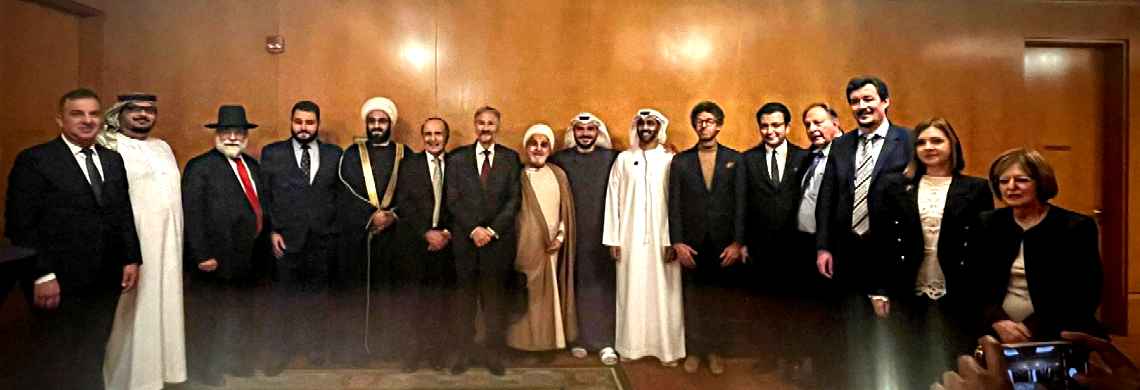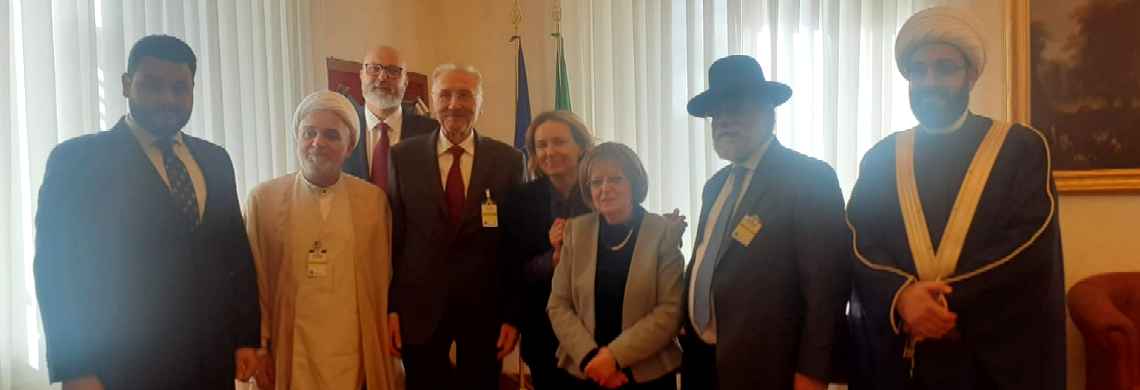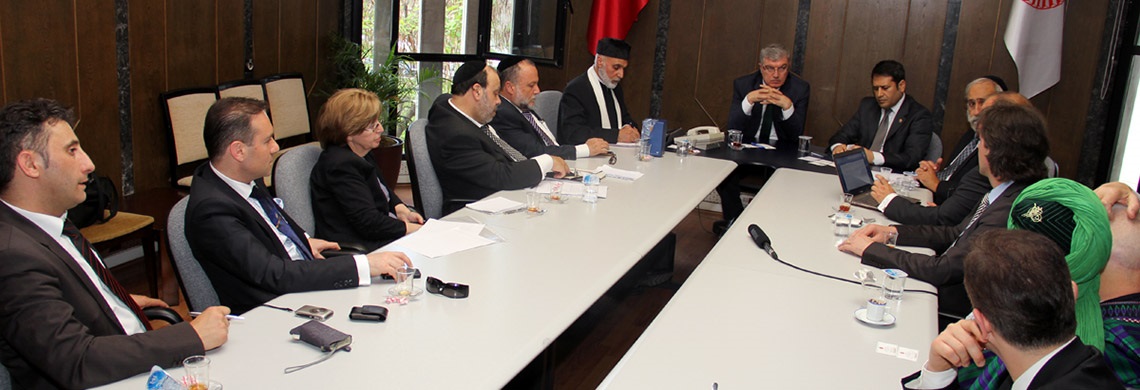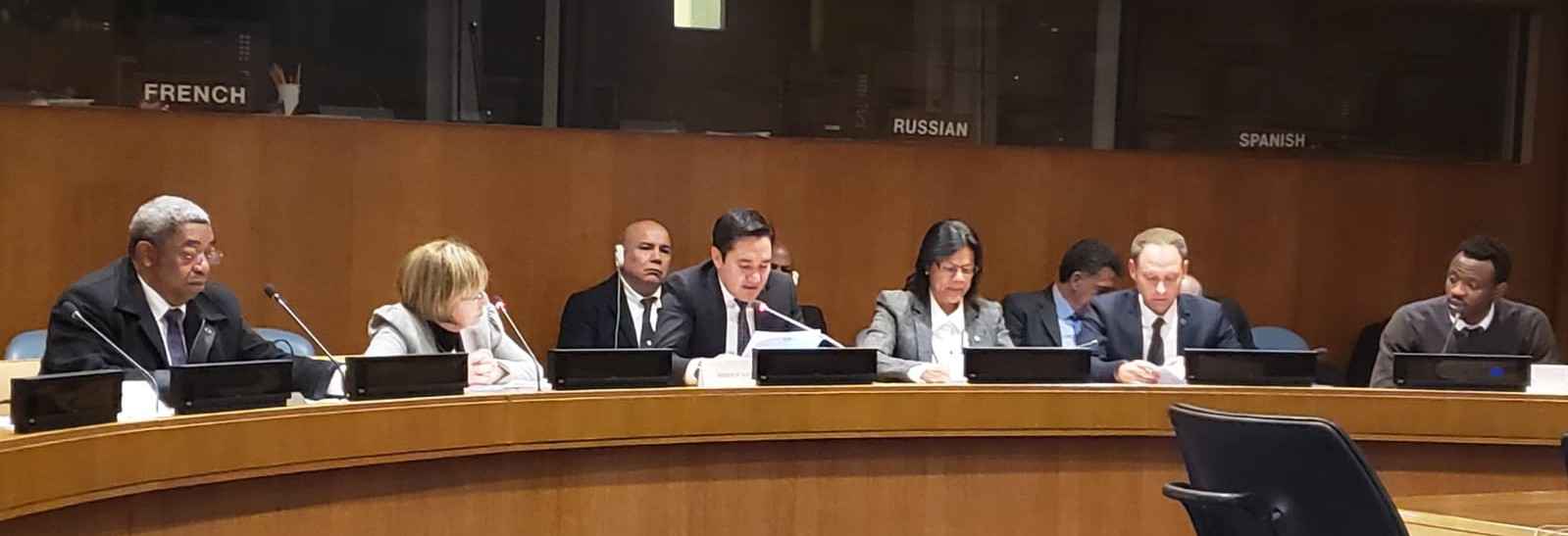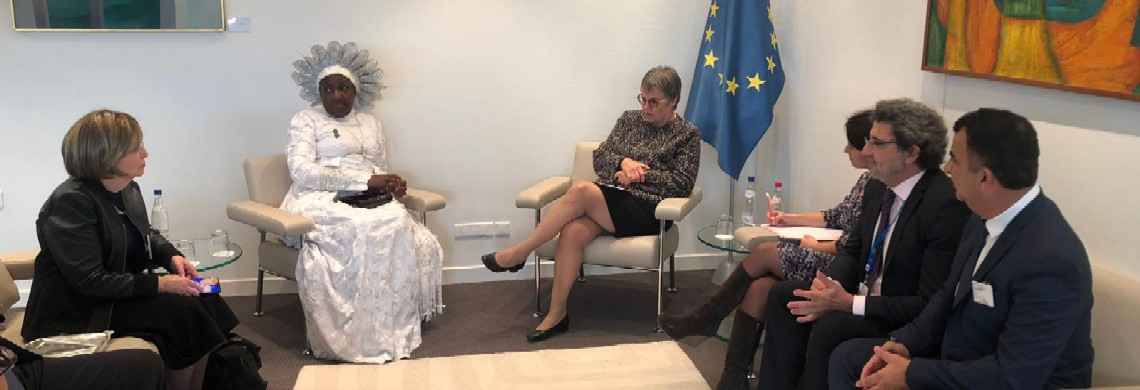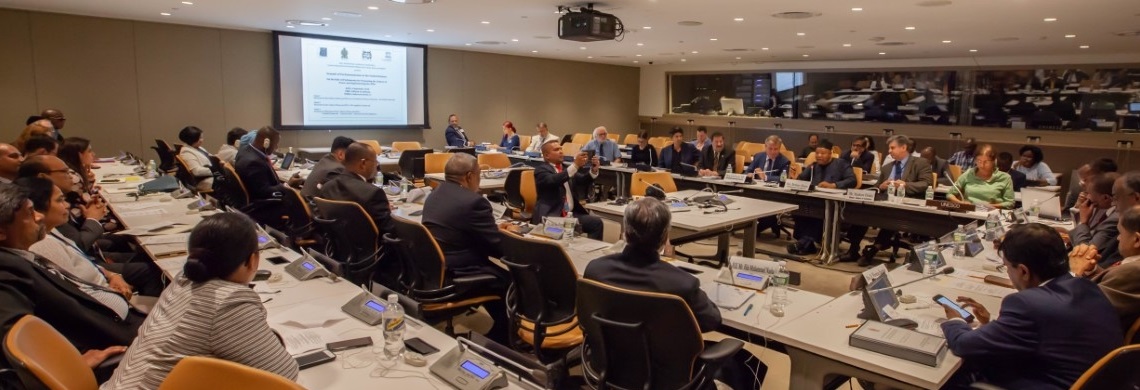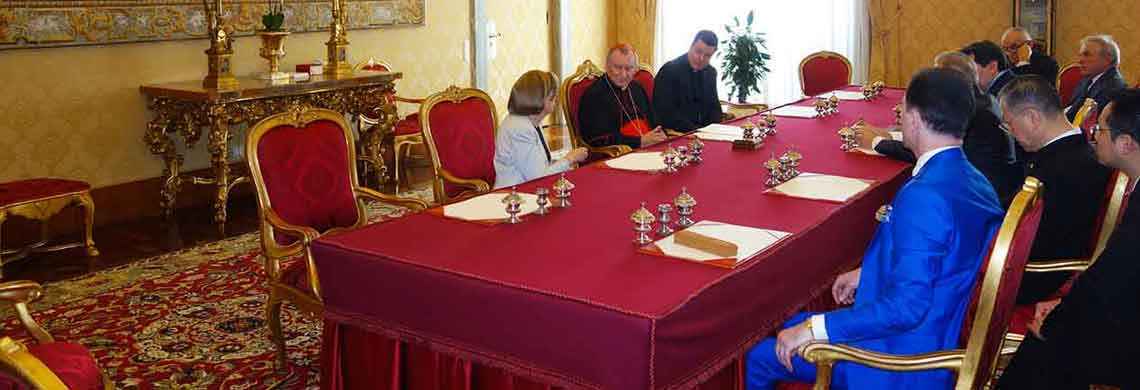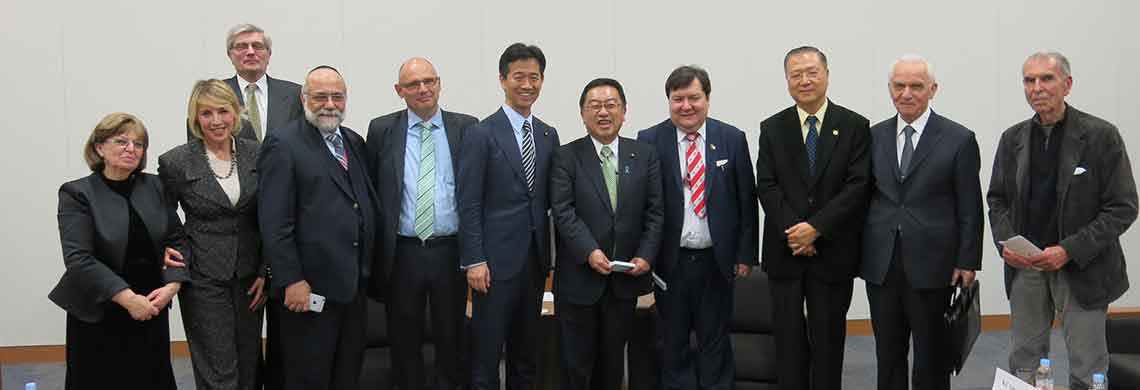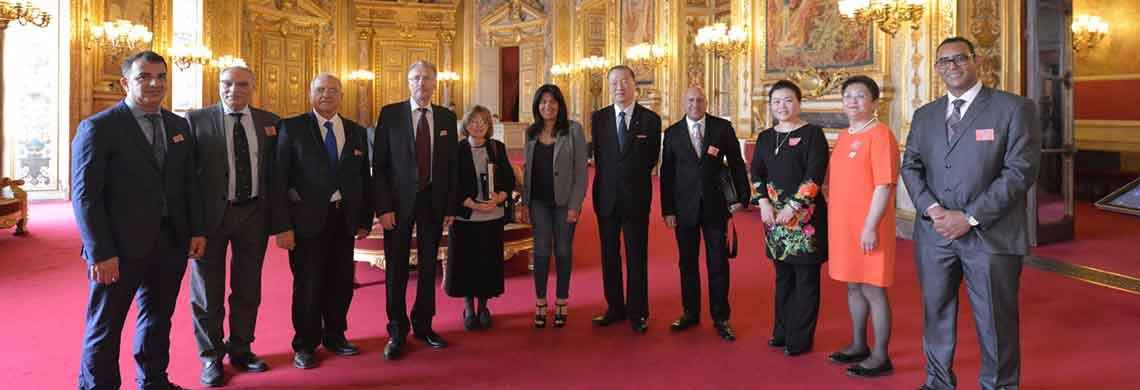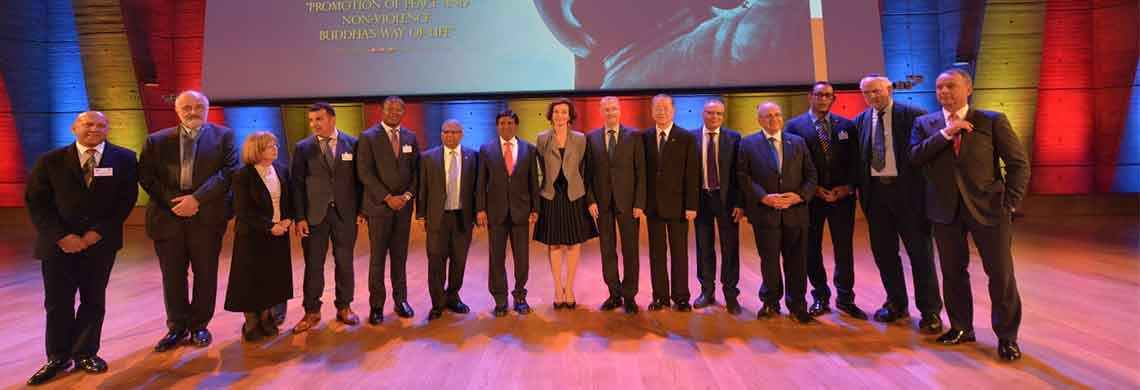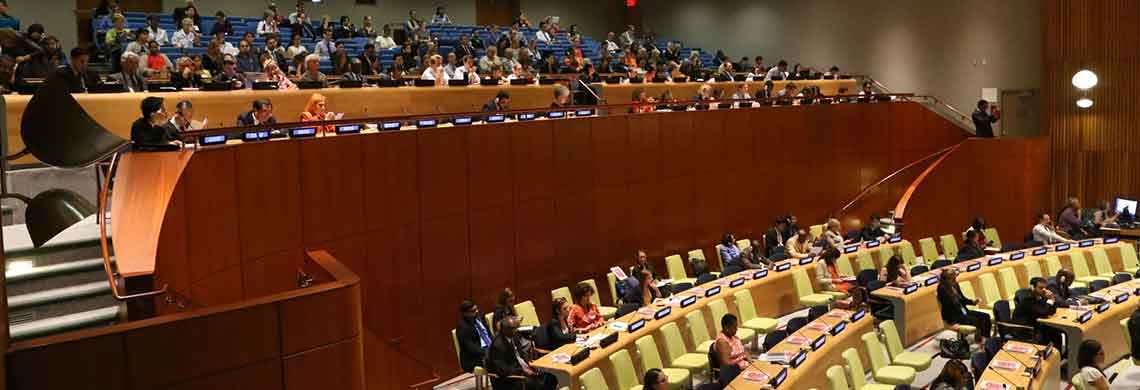Inter-Parliamentary Coalition for Global Ethics
The Levant Initiative for Global Peace
The Levant Initiative for Global Peace
The Inter-Parliamentary Coalition for Global Ethics presents a proposal for Track III Cultural Diplomacy as a model for achieving peace and reconciliation in all areas of conflict around the globe.Overview
Throughout the years since the founding of the United Nations in 1945, many multinational treaties on issues such as human rights, terrorism, international crime, refugees, disarmament, commodities and the oceans have been enacted through the efforts of the United Nations to achieve sustainable global peace and stability.The U.N. organs, agencies, programs and bodies work tirelessly to implement the goals of the United Nations as specified in the U.N. Charter including: keeping peace throughout the world; developing friendly relations among nations; helping nations work together to improve the lives of poor people; encourage respect for each other's rights and freedoms; Serving as a center for harmonizing the actions of nations to achieve these goals.
In order to succeed in these efforts, it was essential to create a framework for the implementation of the General Assembly Resolutions on the Culture of Peace and Global Ethics. The General Assembly has passed a series of resolutions towards the creation of a global Culture of Peace, some related also to the Mideast conflict. These resolutions form the foundation for a Culture of Peace, especially necessary in areas of conflict as well as in all societies and nations.
Among these are the following resolutions:
- Promotion of Religious and Cultural Understanding, Harmony and Cooperation (58/128);
- Elimination of All Forms of Religious Intolerance (59/199);
- The United Nations Millennium Declaration; the principles of the United Nations Year of Dialogue Among Civilizations (.53/22);
- The Declaration and Program of Action on a Culture of Peace, (A/Res/53/243);
- Global Agenda for Dialogue Among Civilizations (A/Res/56/6);
- The Declaration of Madrid (December 2000);
- the International Decade for a Culture of Peace and Non-Violence for the Children of the World (2001 - 2010) (A/RES/53/25);
- Protection of Religious Sites (2001) (A/RES/55/254);
- Promotion of Interreligious Dialogue and Cooperation for Peace (2005) (A/60/L.4);
- "Promotion of Interreligious Dialogue" (2004) A/RES/59/23;
- United Nations Declaration on the Rights of Indigenous People 2007
Mission
Nevertheless, these UN resolutions are still not being fully implemented or incorporated in the efforts to achieve peace in the areas of conflict and there are currently over thirty armed conflicts recognized by the U.N. raging around the globe.
The Levant initiative will endeavor to promote the implementation of these resolutions by engaging religious leaders, parliamentarians, academic leaders, and civil society representatives, who search for common values and principles in the arenas of religion, law and education, to work together and individually implement the United Nations resolutions for the Culture of Peace through fostering initiatives, project and collaboration such as in the field of education, communication and legislation.The initiative will serve as a milestone and model to achieve peace in areas of conflict and in all societies and nations. It is by giving these sectors a voice that we can hope to find a solution to the Mideast conflict and other areas of conflict in the world, which have eluded all efforts thus far. The initiative aims to apply this model for all areas of conflict around the globe.
Cultural diplomacy in Levant
Exploratory Worshop: "Good Governance in the Levant"October 29th -- 30th, 2018
Towards the end of October 2018, the Institute for Advanced Studies in Levant Culture and Civilization organized an exploratory workshop with the theme of "Good Governance in the Levant", attended by three leading members of the World Academy of Art and Science: Garry Jacobs, the CEO of the WAAS and of the World University Consortium (WUC), Alberto Zucconi, Co-Chairman of the WAAS and Neboj?a Ne?kovi?, Secretary General of the WAAS.
Alongside the leadership of the World Academy of Art and Science, the exploratory workshop dedicated to "Good Governance in the Levant" was attended by the leadership of the Institute for Advanced Studies in Levant Culture and Civilization -- Emil Constantinescu, President of the Scientific Council, Andreea Grecu-Ciupal, General Director, Dan Grigorescu, Scientific Director, Luiza Ni, Director of the Department of the History of Culture and Civilizations in the Levant, by members of the Scientific and Advisory Councils of the IASLCC -- Professor Remus Pricopie, the Rector of the National University of Political Studies and Public Administration, Professor Vlad Nistor, the Director of the Romanian Institute of Archaeology in Athens, Professor Daniel Barbu from the Faculty of Political Sciences at the University of Bucharest, as well as by researchers and specialists in the field under review -- Lecturer Daniela Zaharia from the Faculty of History at the University of Bucharest, Professor Florica Mihu?, Lecturer Valentin Bottez and Lecturer Oana Br?nda from the Institute for Advanced Studies in Levant Culture and Civilization.
The discussions focused on a series of pressing challenges facing the historical region of the Levant, such as issues of leadership, Middle Eastern stability, managing access to water reserves in Northern Africa, the importance of the Black Sea and the Mediterranean Sea for the Levantine region, but also the issue of the construction of identity in the Balkans. The discussions were held over two days, and attempted to identify a number of solutions and relevant examples of good practices that could be disseminated and implemented with a view towards one of the Institute for Advanced Studies in Levant Culture and Civilization's primary objectives, the creation of meaningful dialogue and the establishment of a culture of peace in the region.
The key thematic bringing all the aspects outlined above together was "good governance", a comprehensive and integrating concept when applied to the Levantine space. The purpose of good governance is to tactfully approach different identities and to integrate them into an overarching system that ensures their harmonious coexistence. Because cultures are neither standardized nor uniform, it is therefore paramount to be able to promote those elements of the communal past that can be effectively implemented towards building a better future. The essence of good governance is provided by the creation of a system of reference, that groups together macro- elements (states, demographics, religion) and micro- elements (individual stakeholders). Moreover, another characteristic of good governance is the question of capitalization of power: the wider the distribution of power within a given society, the greater their societal stability.
The discussions begun by the first edition of the Exploratory Workshop will be continued in its future editions, which will continue to feature high-profile representatives of the academic communities of Romania and of the world.
Global governance: the future of democracy
The role of international organizations, challenges and opportunities"Good governance represents a constant preoccupation of the members of the World Academy of Art and Science, a theme of both reflection and study. Over the course of 2018, the WAAS has organized three international reunions that explored the future of democracy (Dubrovnik, April 2018), the role of international organizations in global economic governance (Paris, May 2018) and current challenges and opportunities with regard to good governance (Dubrovnik, November 2018).
The conclusions arrived at following these reunions may be summarized as follows: "The world in which we live presents a number of challenges and opportunities situated beyond the capacity of even the most powerful nations or groups of nations to efficiently address for the rest of mankind. Peace and security, climate change and environmental management, immigration and population control, commerce and investment, technological development and occupation of labour markets, tax evasion and money laundering, drug trafficking and terrorism force us to look for global solutions, supported by institutions that have the authority to implement them. None of the challenges of the modern world can be efficiently tackled either at the level of the nation-state, which will always pursue its own interests, competing or at times conflicting with those of other nations, or through bilateral agreements or regional national groupings.
All of today's challenges require greater levels of cooperation and collaboration across the entirety of the global community. We live in an ever more globalized world, yet our governance instruments remain anchored in aging and mostly ineffective institutions, guided by narrow perspectives, misguided priorities, strategies that compete with one another and mutually exclusive objectives. Mankind and its institutions have evolved from the time when international relations were decided by the whims of absolute monarchs and by the ambitions of colonial empires, imposed through violence and enshrined in treaties and bilateral agreements, composed in such a way as to offer great economic advantages to the powerful.
Today, the world is governed by international governmental institutions, charters, conventions, treaties, rules of law, commissions, systems, multinational and national corporations, non-governmental organizations and associations linked to the pursuit of peace, security, commerce, economics, finance, transport, communication, education, science, technology, culture, religion and entertainment. Despite the multiplicity of the paths and instruments of governance, the rapid evolution of global society surpasses the capacity of these institutions to guide, monitor and manage the ever-broadening range of opportunities and challenges that appear. The discrepancy between the needs of mankind and our predominant institutional system is delaying our collective progress, and threatening to undermine the foundations of peace, security, liberty and stability, hard-earned in the aftermath of two World Wars and the Cold War."
![]()





